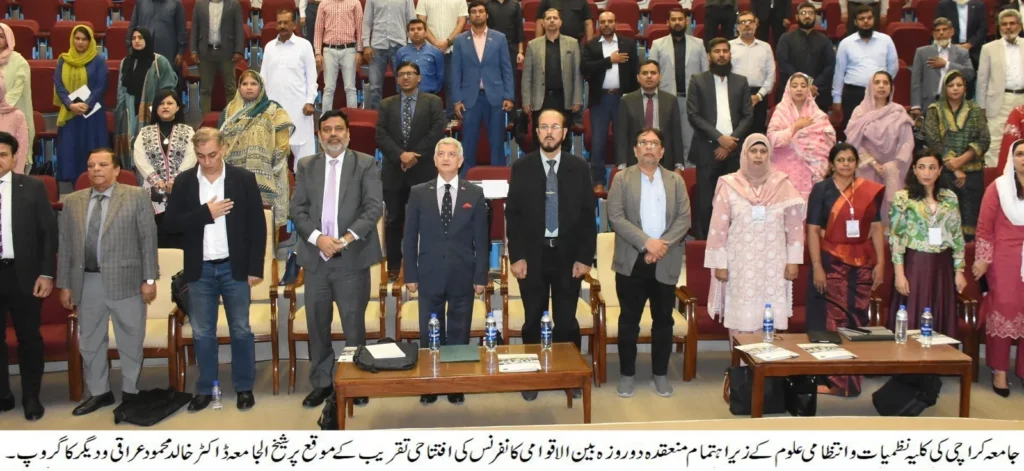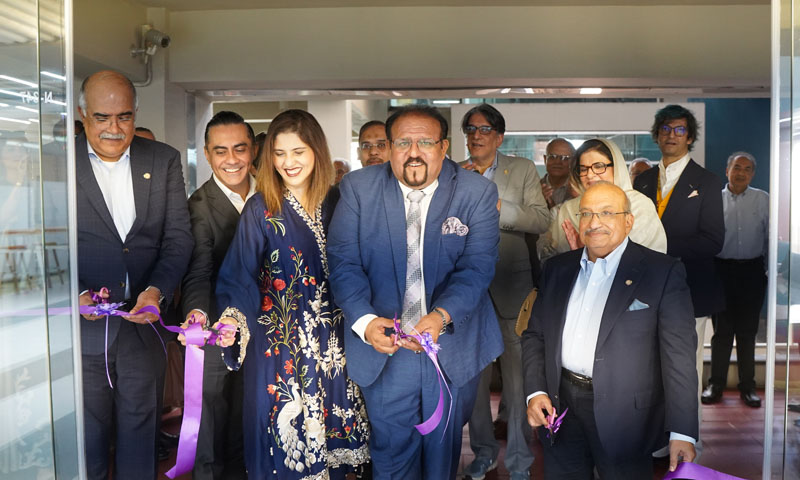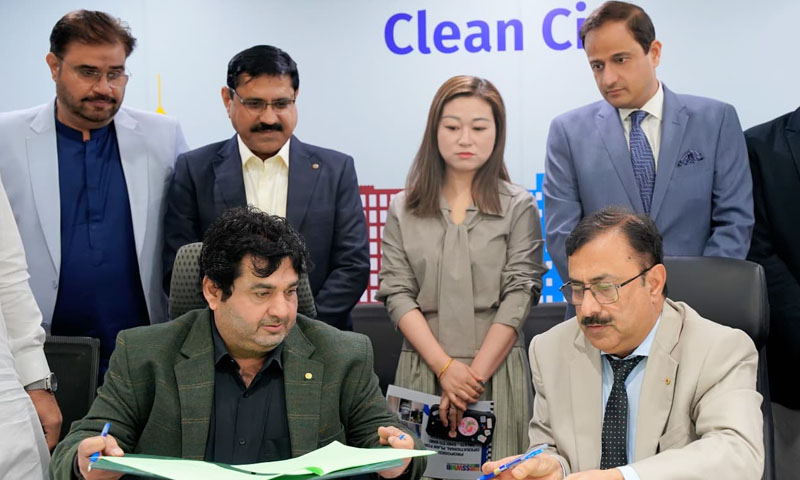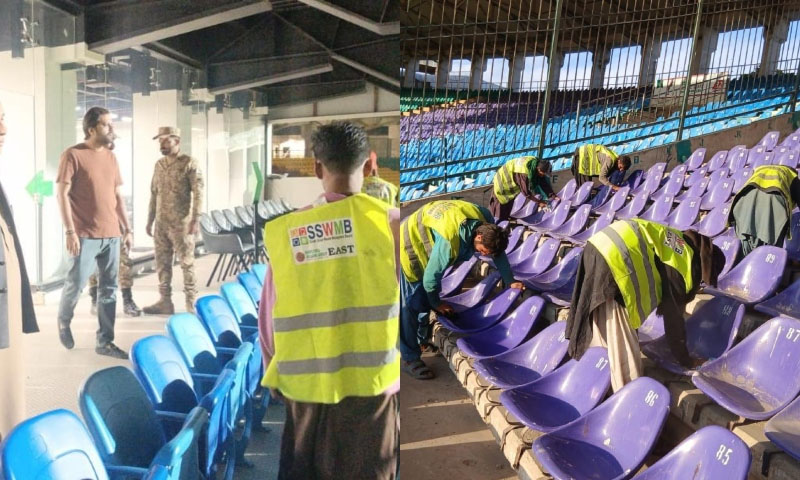- Web Desk
- Jan 12, 2026
KU international conference highlights digital revolution its impact on management
-

- Web Desk Karachi
- Feb 24, 2025

KARACHI: The Faculty of Management and Administrative Sciences of the University of Karachi organized a two-day long international conference on ‘digital transformation in management: the way forward to sustainable practices in global context’ at the KU’s Jinnah Auditorium of the Dr A.Q. Khan Institute of Biotechnology and Genetic Engineering.
During the inaugural session, the Consul General of Türkiye in Karachi Cemal Sangu highlighted the rapid advancement of Artificial Intelligence and how it is redefining the way businesses, governments, and academic institutions operate. He mentioned that Smart decision making, automation, and data-driven insights are no longer futuristic concepts, they are the foundation of modern management.
He urged that to remain competitive in today’s world, business leaders must embrace technology, ensuring that digital tools are used not just for efficiency, but for sustainability and inclusive growth.
Cemal Sangu informed the audience that Türkiye has been at the forefront of Al-driven innovation, integrating digital transformation into key sectors such as education, health, governance, and industry. He stated that institutions like Tübitak and Teknoparks across Türkiye have been instrumental in driving Al research, smart automation, and tech-based business solutions.
Moreover, he added that the Presidency Investment Office of Türkiye has played a crucial role in supporting startup ecosystems, technological ventures, and academic research to build a robust digital economy.
“Türkiye and Pakistan share a common vision for advancing technology and education, and it is through strategic collaboration that we can maximize these opportunities.” The Turkish CG Sangu shed lights on the project being run in Sindh and Balochistan through Turkish Cooperation and Coordination Agency, and mentioned that TIKA is working on expanding Al and digital literacy in education sector offering scholarships to Pakistani students, digital health and other projects in both provinces.
The KU Vice Chancellor Professor Dr Khalid Mahmood Iraqi observed that we are living in an era profoundly impacted by technology and digitalization. He noted that AI and digital advancements have significantly transformed our ways of working, communication methods, and administrative systems.
Karachi University to award honorary doctrate to Iranian President
“Over time, the need for efficiency and transparency in administrative matters has increased. Digitalization offers a solution through which institutions can become more organized, effective, and result-oriented.”
He mentioned that as a KU’s VC, he personally observed how technology facilitates our daily decision-making and communication processes. Modern tools like mobile phones and digital platforms such as WhatsApp enable instant and direct instructions, saving time and ensuring effective coordination between various departments.
He hopes that this conference will shed light on the impact of digitalization on performance, time management, and effective administration. He anticipates that MPhil and PhD students will greatly benefit from this intellectual discourse, as platforms like these not only enhance their knowledge but also provide opportunities to explore new avenues of research.
The VC of the Federal Urdu University of Arts, Science and Technology Professor Dr Zabta Khan Shinwari highlighted the need to understand that traditional teaching methods are no longer effective in today’s digital age.
He emphasized that education is not just about imparting bookish knowledge but about fostering research, critical thinking, and self-learning abilities in students. He mentioned that classrooms need to be viewed from a new perspective, encouraging students to research, form their own opinions, and teach one another. He emphasized that education is a dynamic process of learning and teaching.
He also underlined the responsibility to wisely utilize natural resources. He observed that in the era of digital development, it is essential to understand that along with scientific progress, maintaining ecological balance is crucial.
He termed this approach as ‘responsible scientific behavior’. He mentioned that true success lies in using technology for the benefit of humanity and the natural environment. This is the path to a brighter and sustainable future, where education is not just about rote learning but a creative and practical experience, and development signifies human and environmental betterment.
During the first day, Dr Hend Raafat Ismail from Finance Division Cairo, Egypt presented her keynote address on challenges and opportunities in digital transformation in education, Dr Himali Ekanayake of Open University of Sri Lanka delivered her keynote address on sustainable project management, Raja Asim Zeb the head of ESG and Sustainability NSF Pakistan presented his keynote address on digital transformation in management: a catalyst for ESG and sustainable reporting while Dr Gulay Taltekin Guzel of Markets, Innovation and Design, Bucknell University of USA, presented how social media influencers affect consumer behavior and faculty member of Business and Management, University of Teknologi, Mara, Malaysia Dr Masturah Ma’in shared how digitalization affect economic growth in online sessions.




